With continual changes to UK customs regulations, staying current with declaration requirements is essential for smooth imports and exports. At MartinTrux, we work with businesses across the UK, including through our customs clearance services at London Gateway, to ensure customs declarations are properly prepared and submitted.
Key Changes to UK Customs Declarations in 2025
The past year has brought several significant changes to how customs declarations must be prepared and submitted in the UK. Most importantly, the continued evolution of the Customs Declaration Service (CDS) has introduced new data elements and validation requirements that weren’t present in the legacy CHIEF system.
For businesses importing goods, it’s critical to understand that declaration requirements now include more granular product information and enhanced origin documentation. Additionally, there are stricter validation checks that can cause delays if declarations contain errors or inconsistencies.
Essential Data Elements for Compliant Declarations
A properly prepared customs declaration must include several critical elements:
1. Complete and Accurate Commodity Codes
Commodity codes remain the foundation of any declaration. In 2025, the UK has adopted new code adjustments that impact several industry sectors. As we highlighted in our article on navigating customs duty, using the wrong commodity code can have significant financial implications.
When classifying goods, always use the most current UK Global Tariff database. The codes must be precise to 10 digits, and it’s worth noting that even minor classification errors can lead to substantial penalties.
2. Valuation Method Indicators
One of the most commonly overlooked elements of customs declarations is the proper indication of valuation methods. The UK now requires specific method codes that must correspond exactly with the valuation approach used.
The six valuation methods must be applied in strict hierarchical order, with Method 1 (transaction value) being the most common. Each subsequent method can only be used if the previous one cannot be applied.
3. Comprehensive Origin Information
Origin documentation requirements have become more stringent, with customs authorities requiring detailed evidence to support preferential origin claims. For goods claiming preferential treatment under UK trade agreements, declarations must include:
- The specific preference code
- Supporting documentation references
- Supplier declarations where applicable
As we’ve observed when handling imports from China to the UK, origin documentation has become a frequent focus during customs audits.
4. Additional Procedure Codes (APCs)
The UK now requires more specific Additional Procedure Codes than ever before. These four-digit codes indicate special customs procedures or duty reliefs being claimed. Common examples include:
- 1RL: Relief from customs duty
- 2CD: Goods subject to certain conditions
- F44: Inward processing procedures
Selecting the correct APC combinations is essential, as they determine how your goods are processed and what duties apply.
Common Declaration Errors to Avoid
Through our work helping clients navigate customs processes, we’ve identified several common declaration errors that frequently cause delays:
Inconsistent Documentation
All elements across commercial invoices, packing lists, and declarations must be consistent. Discrepancies in weights, quantities, or descriptions are immediate red flags for customs authorities.
Incomplete Authorisation References
When using special procedures or simplified declarations, all relevant authorisation numbers must be included and valid. Missing or incorrect references almost always lead to declarations being rejected.
Insufficient Goods Descriptions
Generic descriptions are no longer acceptable. Goods descriptions must be specific, identifying exactly what the product is, its purpose, and composition. For example, “parts” is insufficient; “aluminium pump components for industrial water systems” is more appropriate.
Preparing for Customs Audits
With increased scrutiny on declarations, preparing for potential customs audits has become an essential part of import/export operations. Maintaining complete documentation for at least four years is now a minimum requirement, with organised record-keeping systems becoming increasingly important.
When customs authorities conduct post-clearance audits, they typically focus on valuation methods, classification accuracy, and origin claims. Having clear audit trails for decision-making in these areas can significantly reduce your compliance risk.
Getting Expert Support
Navigating the complex world of customs declarations can be challenging, particularly as requirements continue to evolve. Working with experienced customs clearance professionals can help ensure your declarations are compliant and processed efficiently.
At MartinTrux, our team provides comprehensive customs clearance and declaration services, with specialised expertise in UK customs requirements. Whether you’re dealing with standard imports or complex special procedures, our customs clearance UK specialists can help streamline your declaration process.
Contact our team today to discuss how our customs clearance services at London Gateway can help ensure your declarations are fully compliant with the latest requirements, minimising the risk of delays and penalties.

